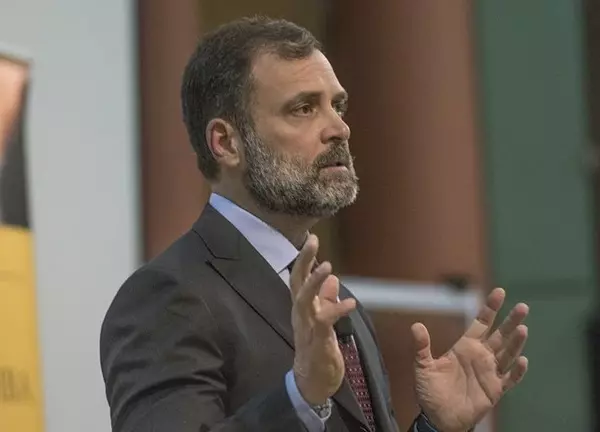

Congress leader Rahul Gandhi gets bail after being sentenced sentenced to two years in jail by a Surat court
A district court in Gujarat’s Surat on Thursday convicted Congress leader Rahul Gandhi in a criminal defamation case against him over his alleged “Modi surname” remark in 2019 and the verdict led to questions over his status as a MP from Kerala’s Wayanad.
However, according to legal experts, Gandhi does not face immediate disqualification, as the court has given him an opportunity to file an appeal challenging the sentence.
Gandhi has been convicted under IPC’s Sections 499 and 500 and the maximum possible punishment under these sections is two years. The court of Chief Judicial Magistrate H.H. Varma also granted him bail and suspended the sentence for 30 days to allow him to appeal in a higher court.
Speaking to IANS, senior advocate Rakesh Dwivedi said Gandhi will have to file an appeal to suspend the sentence in the case and there is no immediate disqualification. He added that even the Lok Sabha would wait and Gandhi can file an appeal to challenge the sentence in the case.
Section 8(3) in The Representation of the People Act (RPA), 1951, says: “A disqualification under either sub-section shall not, in the case of a person who on the date of the conviction is a member of Parliament or the Legislature of a State, take effect until three months have elapsed from that date or, if within that period an appeal or application for revision is brought in respect of the conviction or the sentence, until that appeal or application is disposed of by the court.”
Senior advocate Ranji Thomas said according to 8(3) of the RPA, Gandhi can file an appeal against the sentence in the higher court and there is no question of immediate disqualification, adding that the law provides a breather for Gandhi to challenge the sentence in the case.
In a 2013 ruling in ‘Lily Thomas v Union of India’, the Supreme Court struck down Section 8(4) of the RPA as unconstitutional, which means that simply filing an appeal would not be sufficient but the convicted MP must secure a stay on conviction in the case.
According to legal experts, Gandhi would challenge the CJM court order in the sessions court and if he is unable to get relief there, he can move the high court. While filing the appeal against the trial court order in higher courts, chances are very slim that disqualification proceedings would be initiated against him.
Also read: Rahul Gandhi gets 2-year jail term in Modi surname case, given 30-day bail to appeal
Leaders of the BRICS nations welcomed Indonesia as a member of the group, while 10…
External Affairs Minister S Jaishankar held a meeting with his Russian counterpart Sergey Lavrov on…
The Russian military has carried out a series of strikes on Ukrainian military-related targets in…
India's toy industry, once heavily dependent on imports, is now manufacturing domestically and exporting to…
Members of the Indian diaspora and several artists in Argentina welcomed Prime Minister Narendra Modi…
Sub Lieutenant Astha Poonia officially became the first woman to be streamed into the fighter…